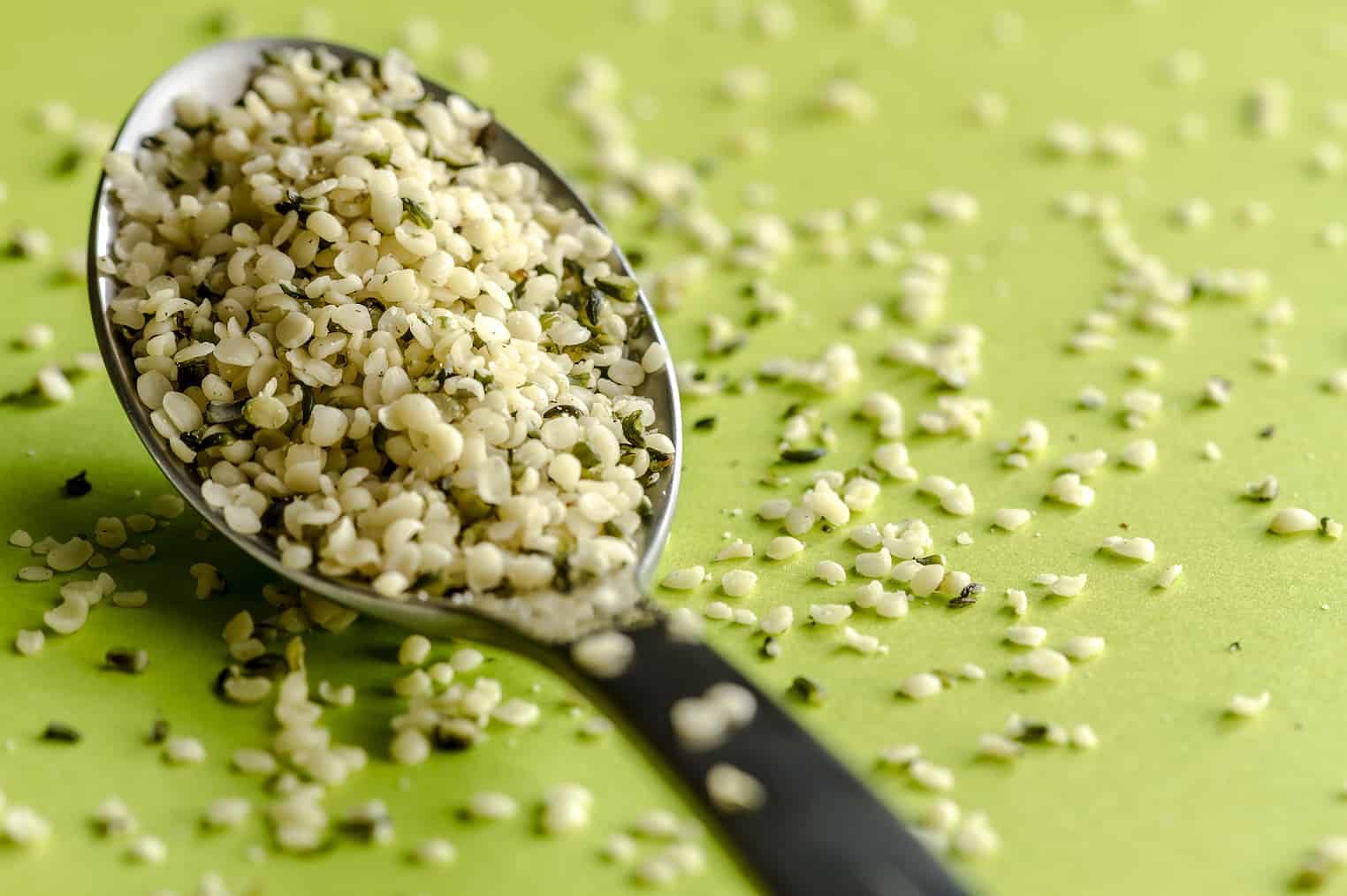19 Foods Dietitians Say We Should All Be Eating More Of
Some of these dietitian-recommended foods, like fruits, vegetables, and whole grains, are no surprise. However, there are many other nutritious items that often get overlooked. Dietitians want us to eat more of these nutritional powerhouses that are rich in vitamins, minerals, fiber, healthy fats, and antioxidants.
Incorporating more of the foods on this list can enhance the quality of your diet, fight disease, boost energy levels, and help you maintain a healthy body weight.
These are the 19 superfoods that nutrition experts want you to eat more of.
Hemp Hearts
“I’m always telling people to eat more hemp hearts! They’re tiny but might and easy to add to almost anything! A great source of healthy fats, protein, fiber, iron and magnesium! Add them to pancakes, muffins, smoothies, sauces and more.” Lindsay Livingston, RD, Owner of The Lean Green Bean
Fatty Fish

“When it comes to beneficial foods, fatty fish, like salmon and tuna, is one I recommend often. The omega-3 fatty acids found in salmon are not only essential for heart health, but they also support brain health, reduce inflammation, and potentially even uplift mood. As a high-quality protein source, salmon aids muscle repair and growth. It’s also rich in Vitamin D, an often overlooked nutrient essential for bone health and immune function. Incorporating salmon into your meals not only elevates the taste but significantly boosts the nutritional profile, making it a choice that’s both healthy and enjoyable.” Kristin Draayer, MS, RDN at Nutrition by Kristin
Sweet Potatoes
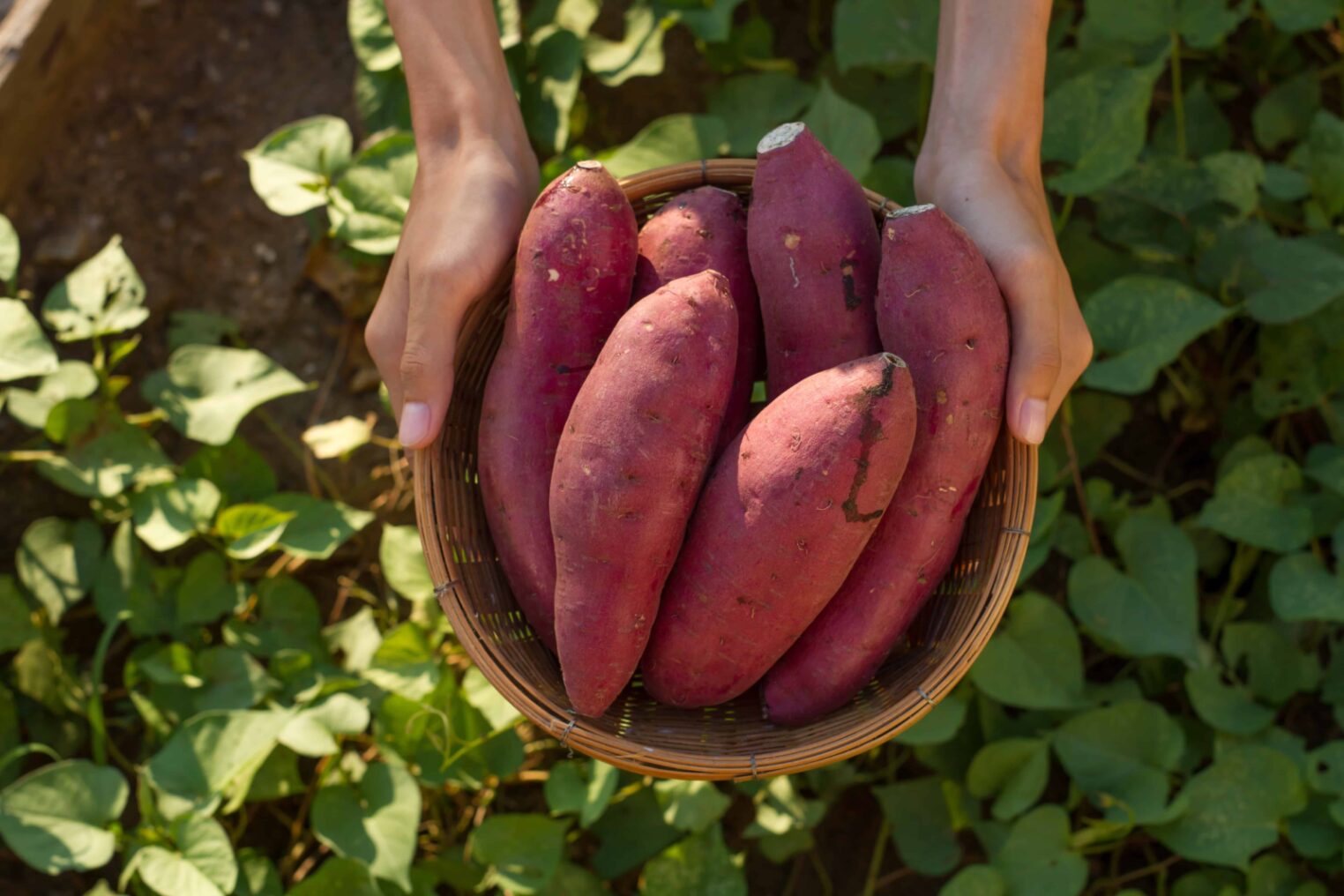
“I “always recommend clients eat more sweet potatoes. They are extremely versatile and can pair with nearly any food, from meats, to dairy, to grains, and of course other fruits and veggies. Therefore, they are likely to include other healthy foods alongside as well. Sweet potatoes are also an excellent source of Vitamins A and C, fiber and potassium. They can be served with savory dishes and because they are naturally sweet, they can quench a sweet tooth without added sugars.” Sarah Schlichter, MPH, RDN of Bucket List Tummy
Chia Seeds
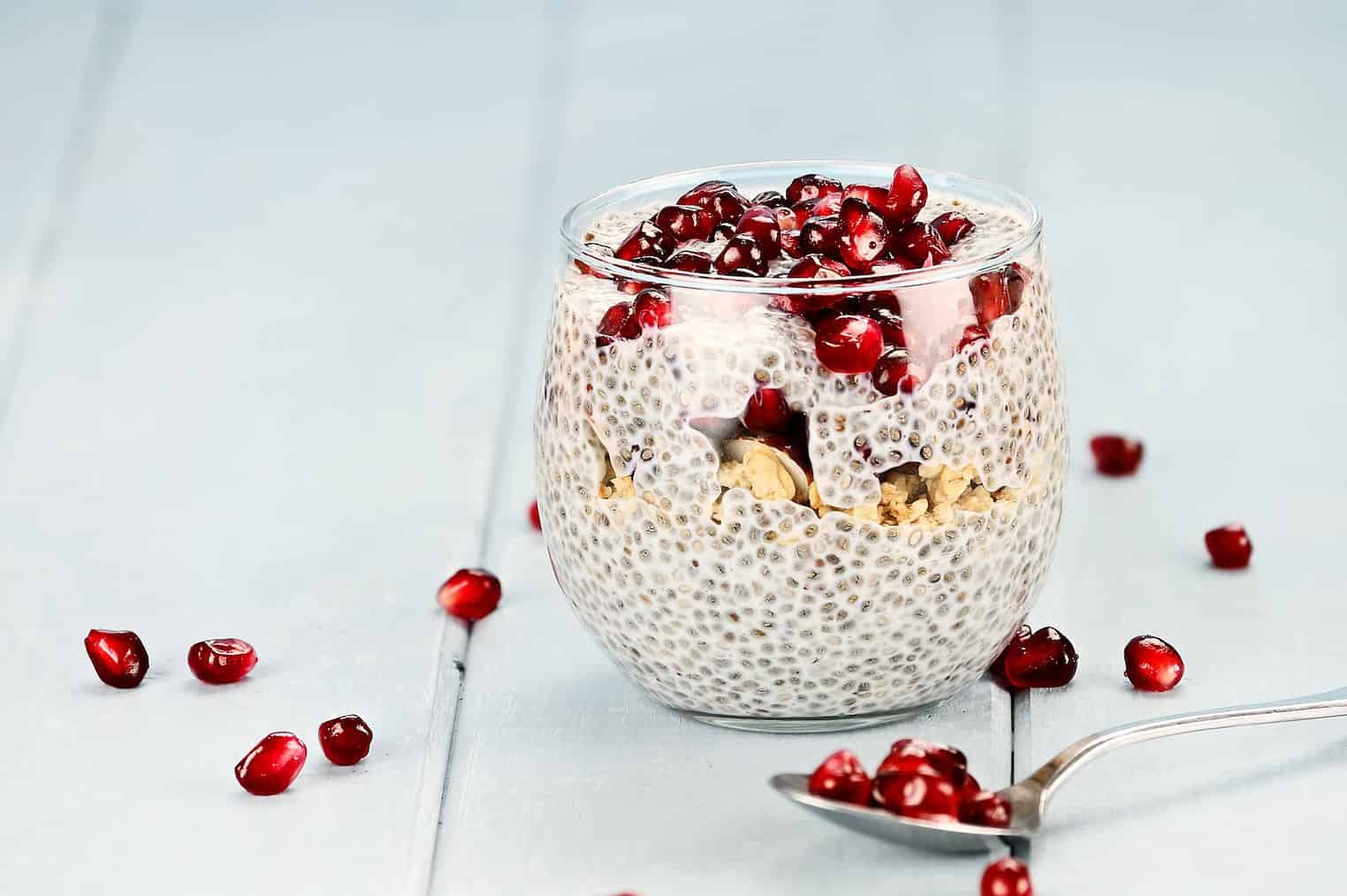
“The food I recommend the most to clients is chia seeds. Not only is it heart healthy, but can also help with stomach and digestive issues as well.” Emily Oschmann, MS, RDN, LDN, CDN, Owner of Healthy By Emily
Lentils
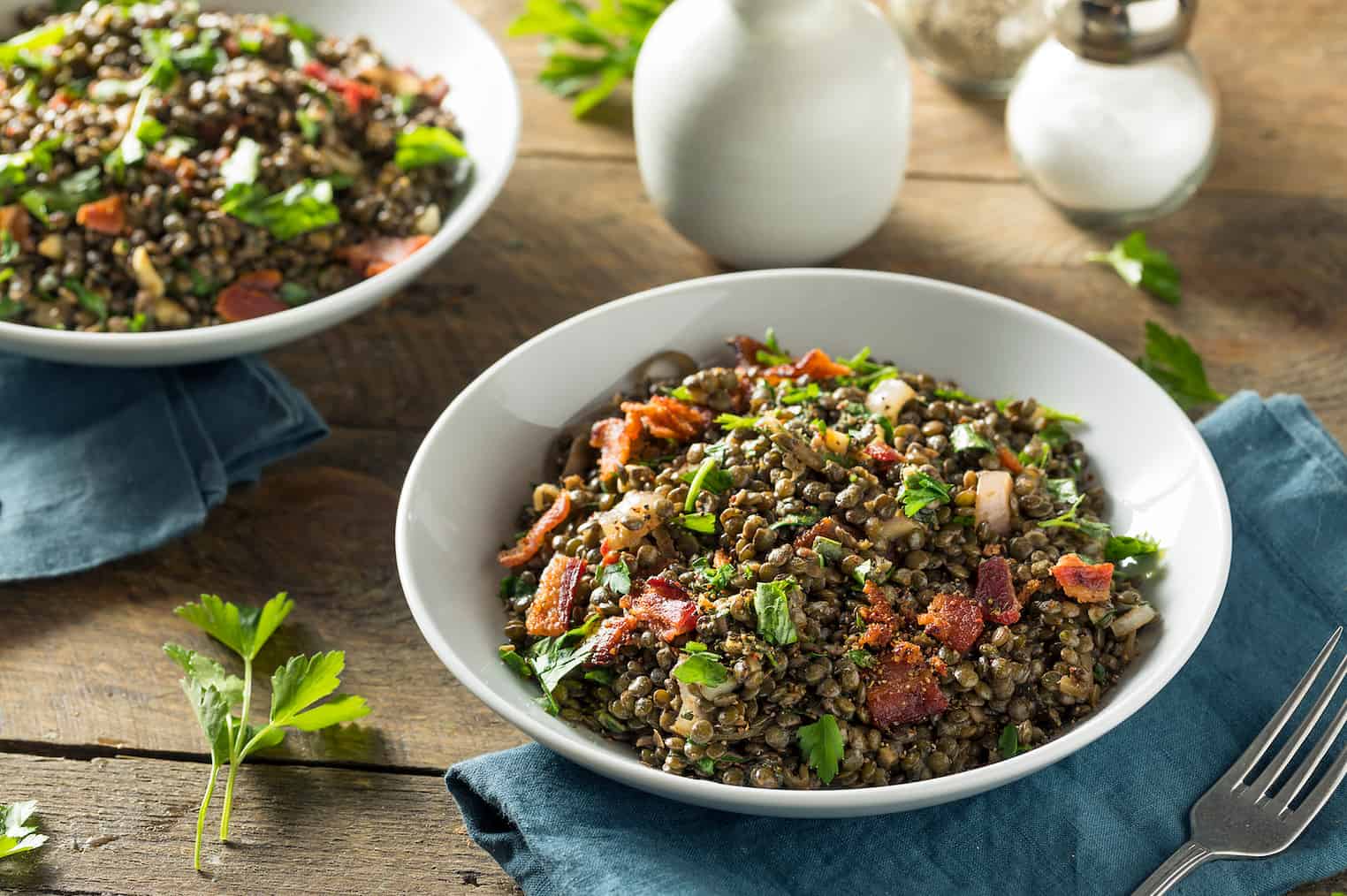
“My favorite nutrient dense food that offers numerous health benefits is lentils! These legumes offer a wide array of health benefits including plant-based protein, high fiber (soluble and insoluble) and essential vitamins and minerals like folate, and iron. Lentils support digestion, promote satiety and contribute to heart health. It’s easy to incorporate into meals such as salads, soups and as a meat substitute. The best part is that they’re budget friendly!” Samantha Podob MS RD CDN, owner of Podob Nutrition
Beets
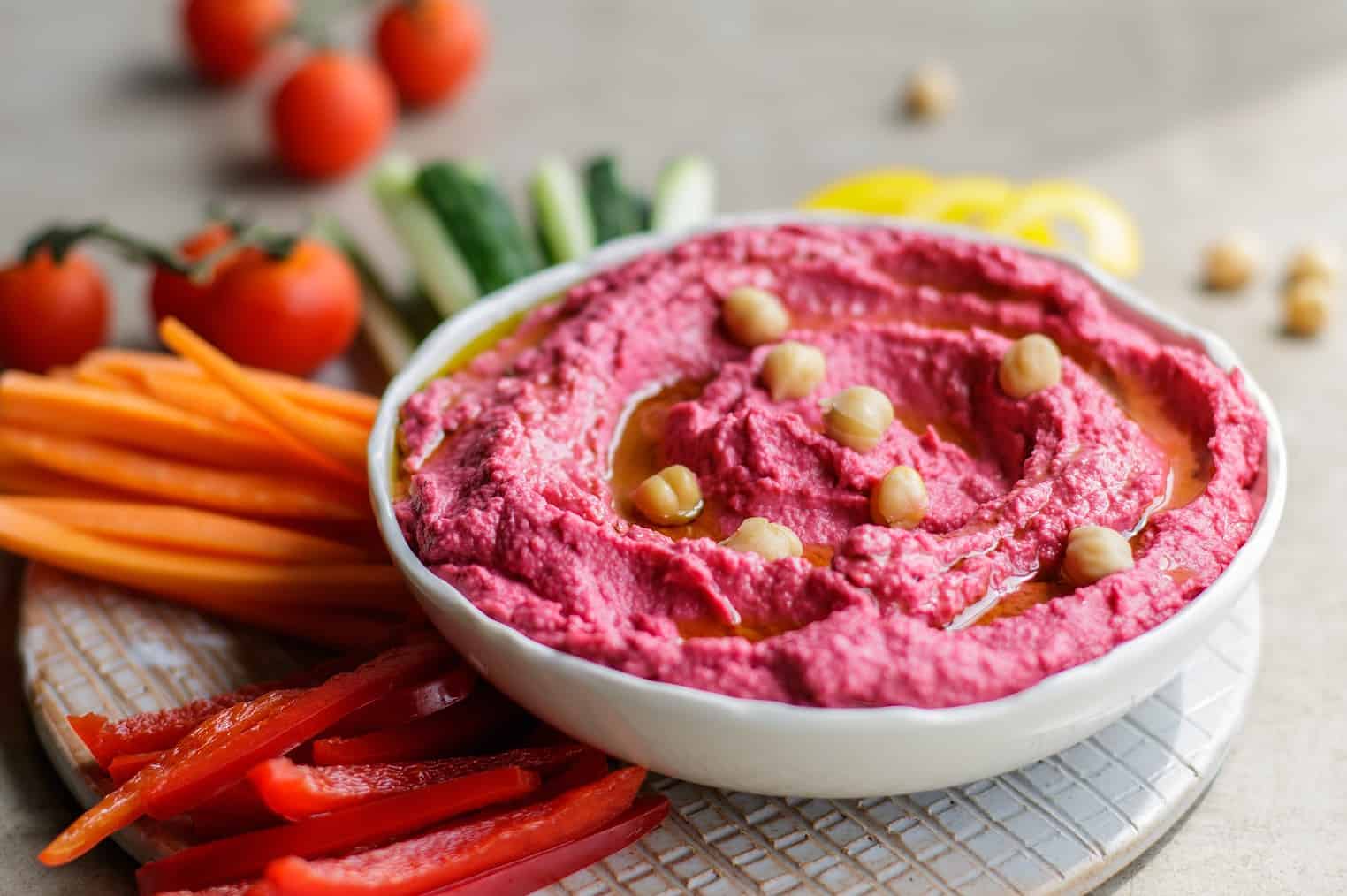
“New research is bringing to light the remarkable health benefits of beets and beet juice, previously underappreciated superfoods. Consuming these vibrant, nutrient-dense foods could significantly lower your risk of chronic diseases such as cancer, heart disease, and diabetes while bolstering cognitive function. What’s more, consuming more beets may improve your physical performance and reduce post-workout muscle soreness.
The powerful antioxidant properties of beets come from betalains, phytonutrients that give beets their dark red color. Betalains combat the effects of harmful free radicals in the body and help prevent chronic disease and inflammation.
In addition to their impressive antioxidant content, beets boast a high fiber content (not found in beet juice due to the removal process). This fiber aids in maintaining optimal gut health and function. Animal studies have also pointed to the cholesterol-lowering potential of beet fiber (6).
While no strict guideline exists regarding the ideal beet dosage, incorporating 1-2 large beets or 3-4 small beets into your daily diet is believed to yield significant health benefits. Alternatively, a daily glass of 6-8 oz beet juice can offer comparable results.”
Pam Hartnett MPH, RDN, Cancer Health Coach and owner of The Vitality Dietitians.
Berries
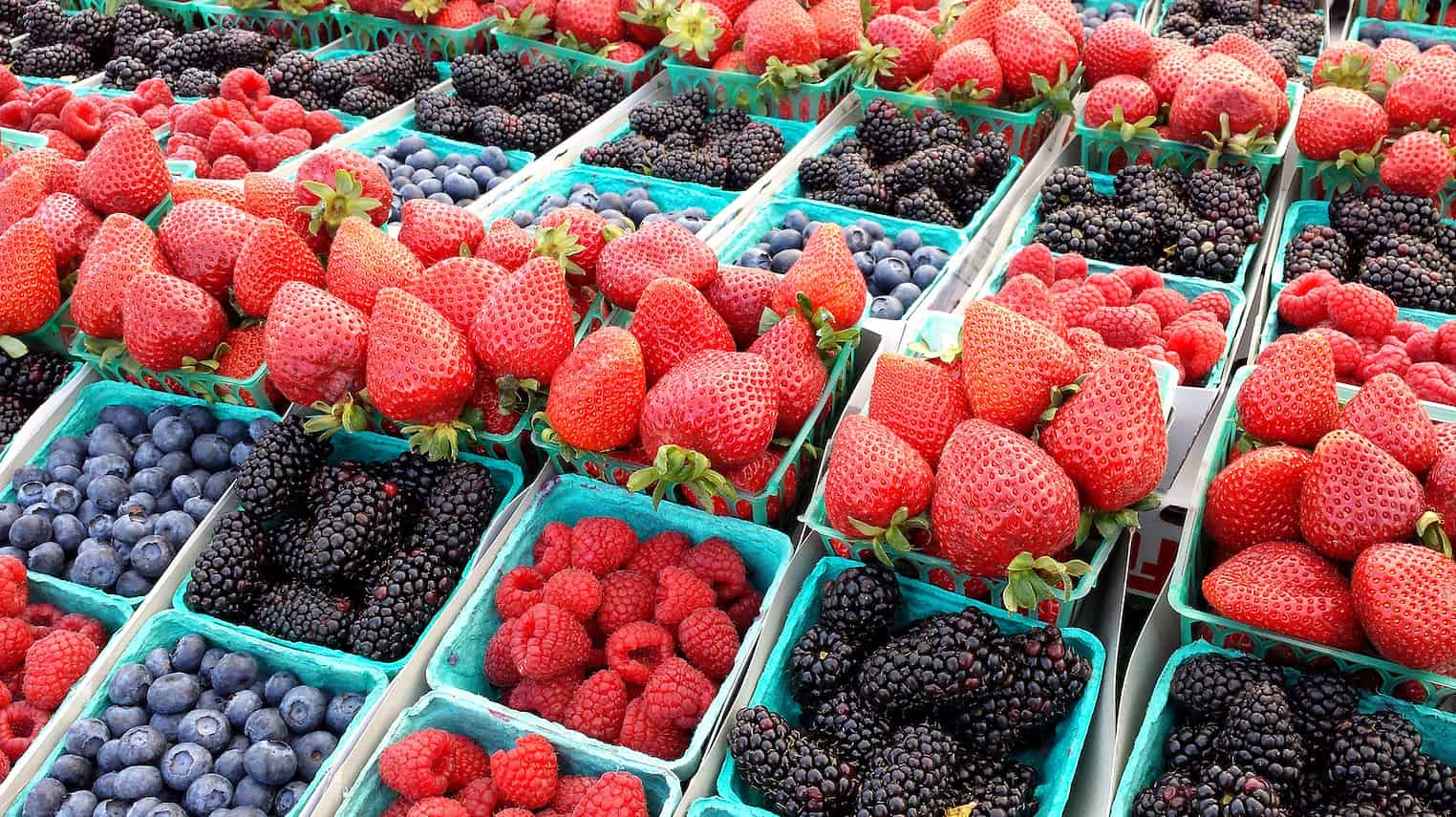
“Berries, especially blueberries and strawberries, are a food I always recommend people eat more often. They are loaded with powerful brain-boosting antioxidants that have been shown to help reduce inflammation in the brain and throughout the body. The antioxidants in berries have also been shown to help improve blood flow to the brain and communication between brain cells. Berries are an integral part of the MIND diet (Mediterranean – Dietary Approach to Systolic Hypertension (DASH) diet) that has been shown to delay cognitive aging and reduce the risk of Alzheimer’s disease. Just toss a handful of berries into your morning yogurt or cereal are two easy ways to add more berries to your meals.” Laura M. Ali, MS, RD at culinary nutritionist and author of The MIND Diet for Two, based in Pittsburgh, PA
Beans
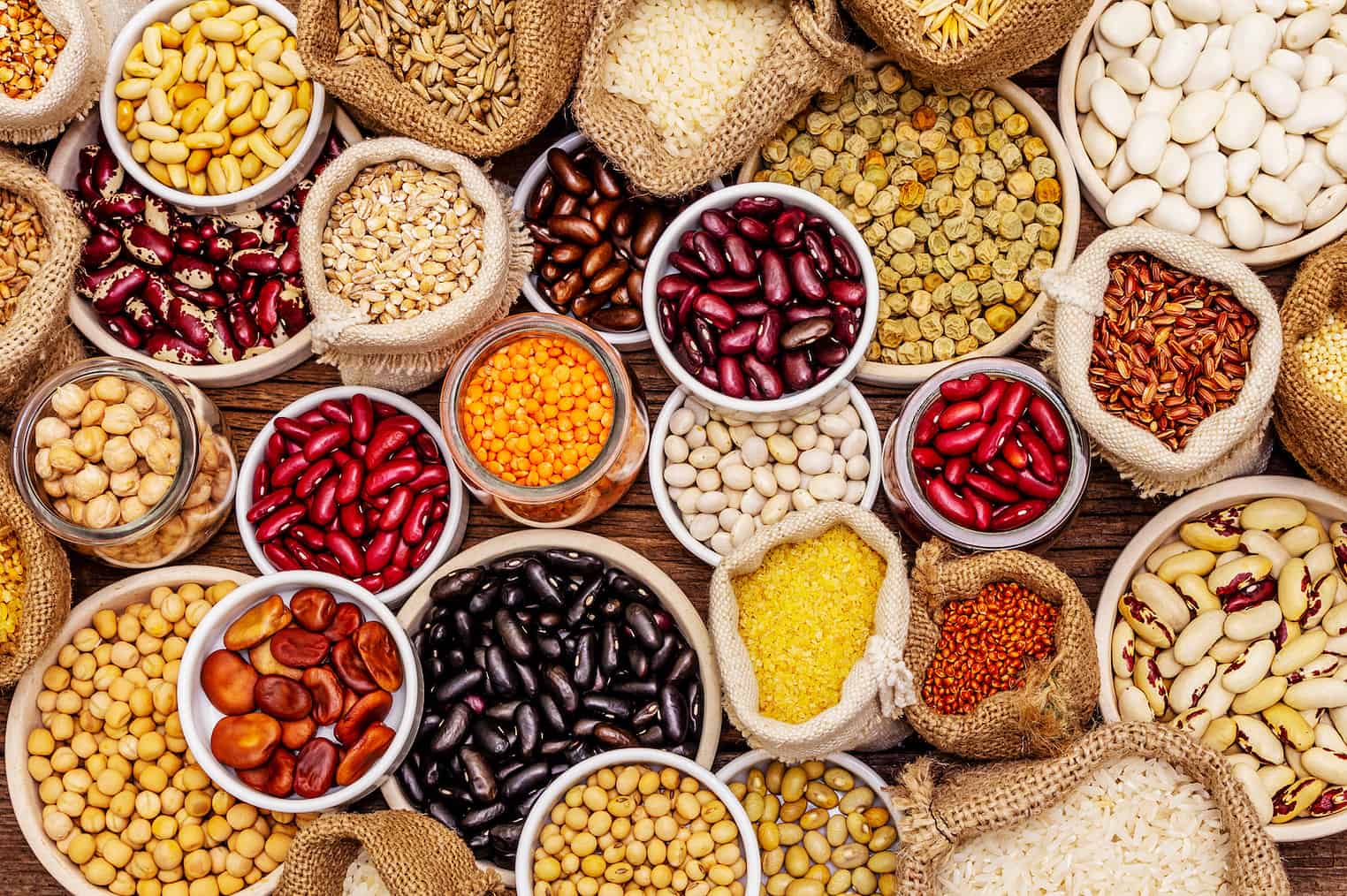
Beans top the list of many dietitians list of foods to eat more of. Aand that’s true for beans of any kind – black, pinto, chickpeas, lima, navy, etc!
“Nutritionally, beans are one of the foods that I consider “the total package”! Good source of protein, healthy carbohydrates, and fiber. Since it is a plant-source of protein, it also is one of the few great protein sources that contain phytochemicals, which are compounds found only in plant foods that provide health benefits related to proper cell division and cell processes. For example, beans have polyphenols, a class of phytochemicals that help reduce oxidative stress and free radicals in the body, which helps reduce inflammation and ultimately mitigates the risk of developing chronic diseases such as heart disease, diabetes, and cancer.” Kelly Flater, MPPD RD LD
“If I could recommend just one food for my clients to eat more of it would be beans! Just a half cup of pinto beans packs in 20 grams of protein and 15 grams of fiber. The fiber content helps most people get closer to reaching their daily fiber goal of 25-30 grams per day, which helps promote a healthy digestive system and can help to lower the “bad” LDL cholesterol. The same half cup of pinto beans also pack in a whopping 20 grams of protein. This is a great addition to meals to help people stay full and energized.” Kimberley Wiemann, MS, RDN, a Long Island, New York-based registered dietitian.
Other dietitians agree as Justine Chan, MHSc, RD, CDE, Registered Dietitian and Certified Diabetes Educator says, “I recommend eating more beans and legumes because they contain resistant starch which helps to feed your intestinal bacteria and promote a healthy gut.”
Sarah Anzlovar, MS, RDN, LDN, Intuitive Eating Dietitian for Moms at Sarah Gold Nutrition, LLC, agrees, “Diets high in beans have been linked to lower rates of cardiovascular disease, colon and other cancers, type 2 diabetes, and other chronic health conditions. Plus they’re super versatile and budget-friendly.”
Pepitas
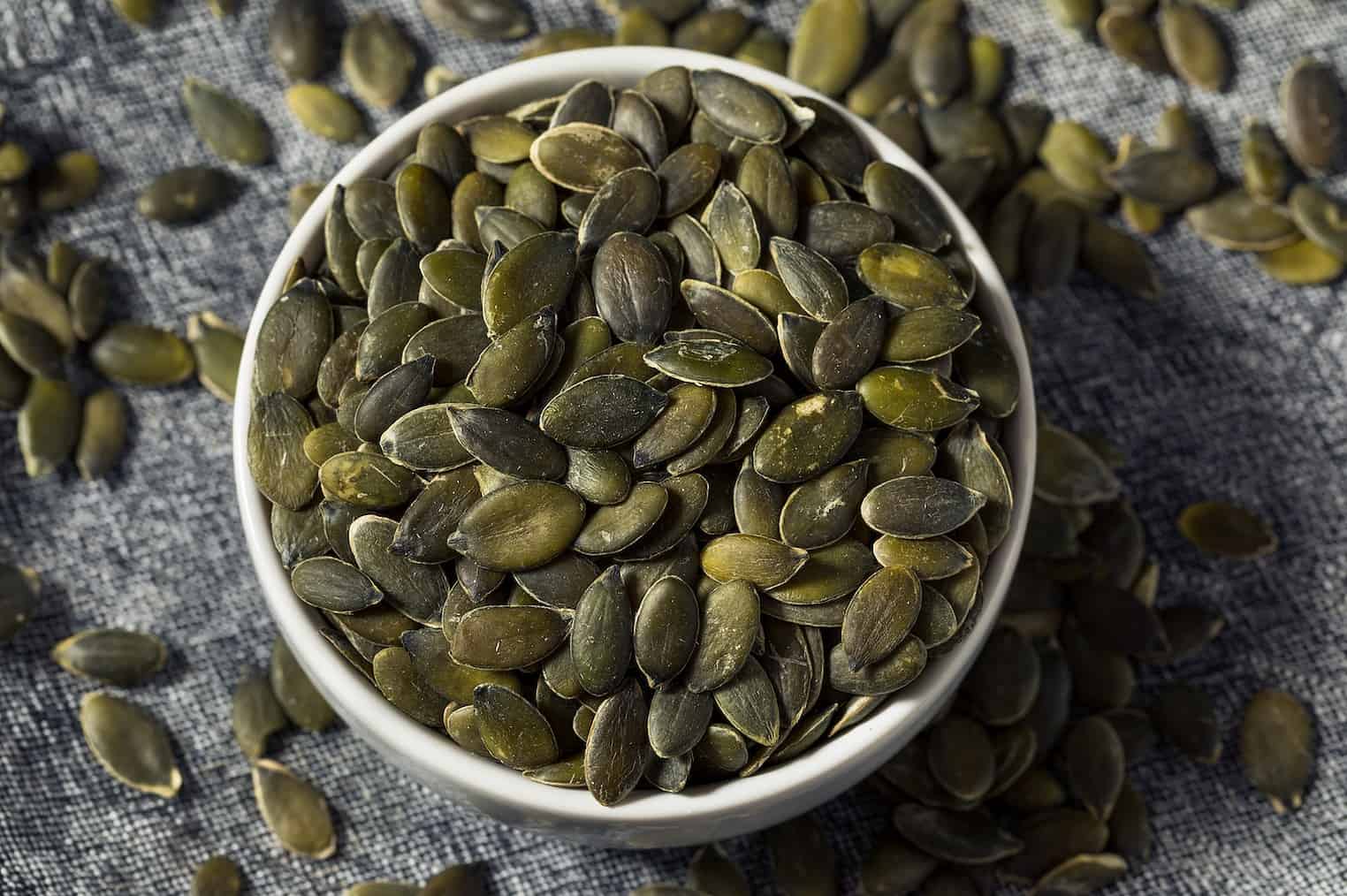
“I’m often telling clients to enjoy more pepitas (aka shelled pumpkin seeds) because they’re one of the best food sources for magnesium! Magnesium is essential for good sleep, fighting inflammation, and muscle contraction and relaxation, and it helps convert food into energy for our cells, but most of us aren’t getting enough in each day. Pepitas are tiny but mighty with a 1-ounce serving providing about 37% of the recommended daily amount of magnesium. Enjoy more peptas in your day by mixing into a trail mix, topping oatmeal or yogurt with them, or sprinkling on top of a salad or soup.” Karman Meyer, Host of PBS show ‘Eat To Sleep, and author of Eat To Sleep: What To Eat & When To Eat It
Bananas
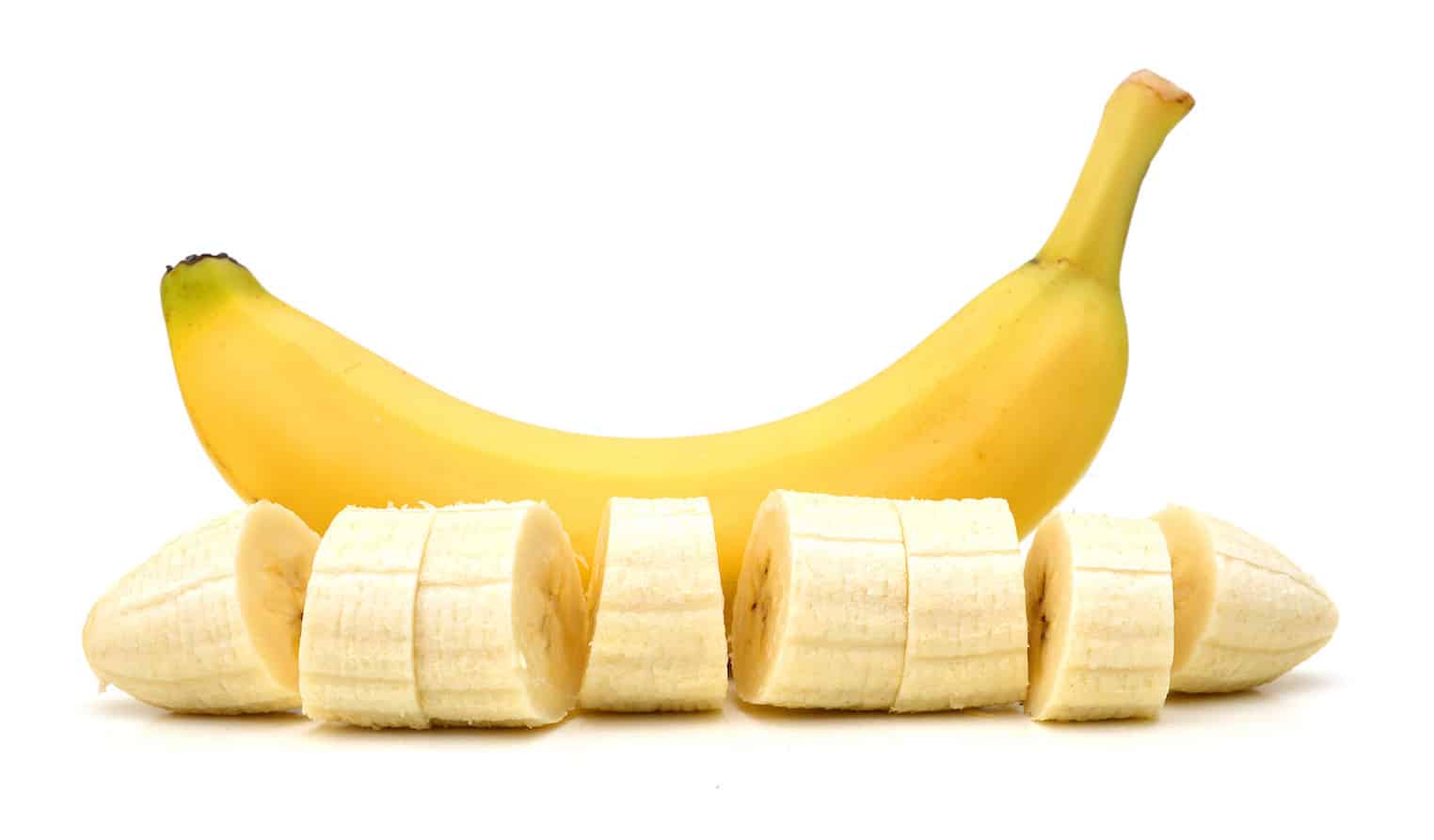
“I’m often encouraging my clients to eat more bananas. I work with people who have chronic kidney disease (CKD), and one of the worst myths is that having CKD means no potassium. However, that’s simply not the case. Most people in the U.S. don’t get enough potassium as it is. People with early stage CKD may still benefit from getting adequate potassium to support cardiovascular health. And the evidence behind restricting potassium to preserve kidney function is deteriorating.” Jen Hernandez RDN, CSR, LDN, CEO of Plant-Powered Kidneys Inc.
Raspberries
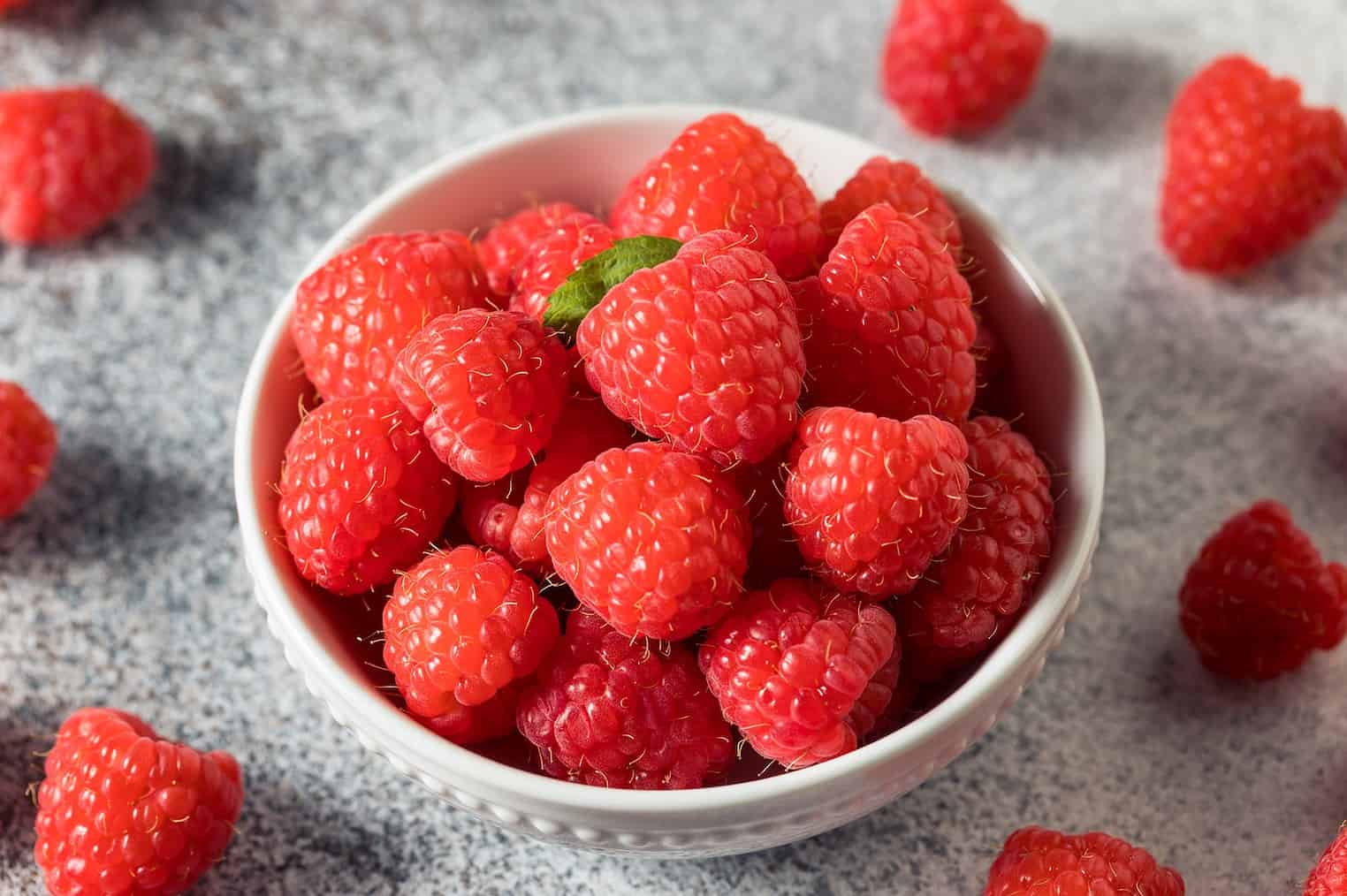
“A single cup of raspberries contain 8 grams of fiber! That’s about a quarter of most people’s daily fiber needs. Berries in general are rich in color and therefore loaded with antioxidants to keep your cells and organs healthy. Raspberries are rich in the antioxidants quercetin and ellagic acid, which can help your body fight oxidative stress. Raspberries can protect against some cancers, diabetes and heart disease too. And since they’re low in calories and high in fiber, raspberries are a wonderful food to support gentle and sustainable weight loss.” Miranda Galati, MHSc, RD, Dietitian and Founder of Real Life Nutritionist
Eggs

“I highly recommend my clients incorporate more eggs into their diet. Eggs are an excellent source of high quality protein which helps repair and support our bodily functions, plus it helps keep us satisfied for longer, aiding in weight control. It’s also packed with B12, biotin, choline, selenium, and iodine, plus lutein and zeaxanthin which are beneficial for eye health.” Natalie Gillett, MS, RD , Owner of Natalie Gillett Nutrition
Caroline Young, MS, RD, LD, RYT, Owner of Whole Self Nutrition, agrees as well. “Eggs are one of the most nutrient-dense foods you can eat and they are a great source of protein. Plus, they are versatile and delicious!”
Greek Yogurt
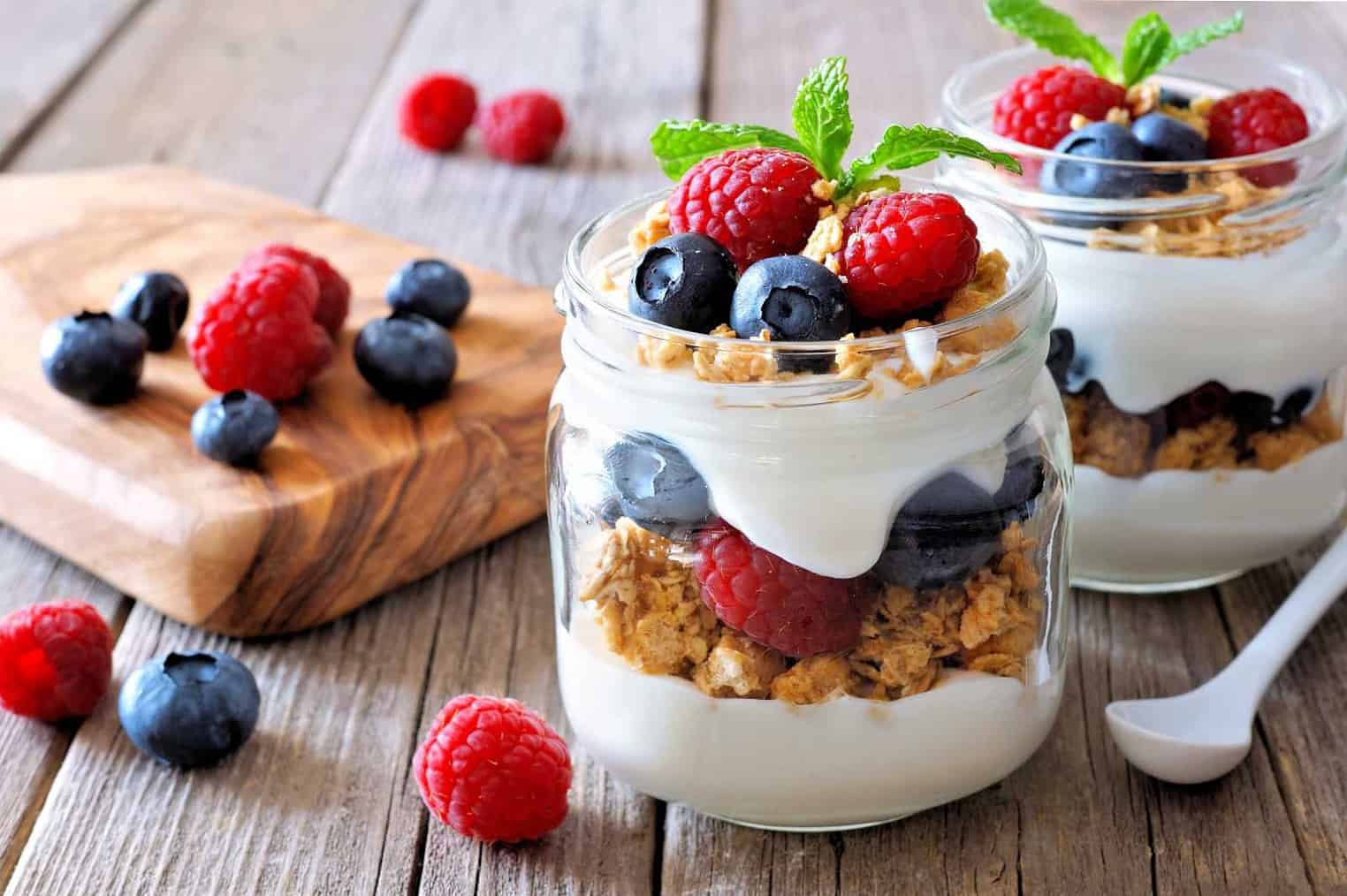
“The food I recommend my clients eat more of is Greek yogurt. As a powerful mix of nutrients, Greek yogurt contains protein for your muscles, calcium for your bones, potassium to lower blood pressure, and probiotics for a healthy gut. The strains of probiotics in fermented milk have also been shown to improve immune function by increasing the variety of good gut microbes, and protecting the lining of the intestines.” Kim Kulp, RDN, owner of the Gut Health Connection in the San Francisco Bay Area.
Jamie Nadeau, Registered Dietitian Nutritionist of The Balanced Nutritionist, agrees. “One food I almost always encourage clients to eat more of is Greek yogurt. It’s convenient, it’s relatively inexpensive and it’s an excellent protein source.”
Tempeh
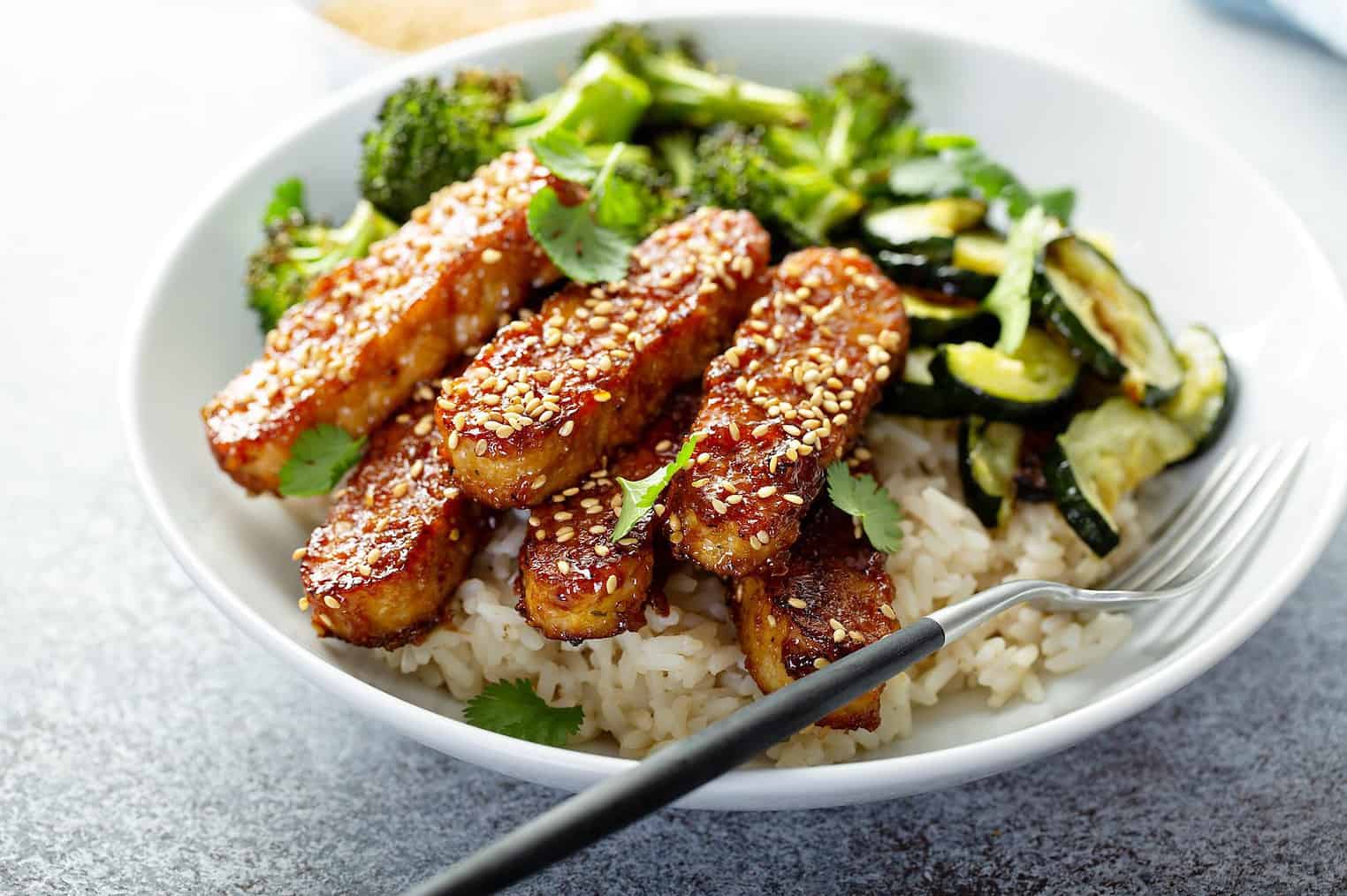
“Tempeh is a fermented soy product that provides a wide array of vitamins and minerals. It is a complete source of plant based protein, containing all nine essential amino acids that your body needs for healthy bones and muscles. A 3oz serving of tempeh has 16-18g of complete plant-based protein. Tempeh is a great source of fiber, prebiotics, and a variety of vitamins and minerals, including manganese, phosphorus, magnesium, and riboflavin. It is a nutrient-dense food that may decrease cholesterol levels, improve gut health, and support bone health. It can be used in a wide variety of dishes, such as salads, sandwiches, stir-fries, pasta sauces, nourishing grain bowls, curries, and more. It is a great way to add more plant-based protein to almost any diet, and it is easy to incorporate into your meals.” Wan Na Chun, MPH, RD, CPT, owner of One Pot Wellness.
Any Whole Plant Food
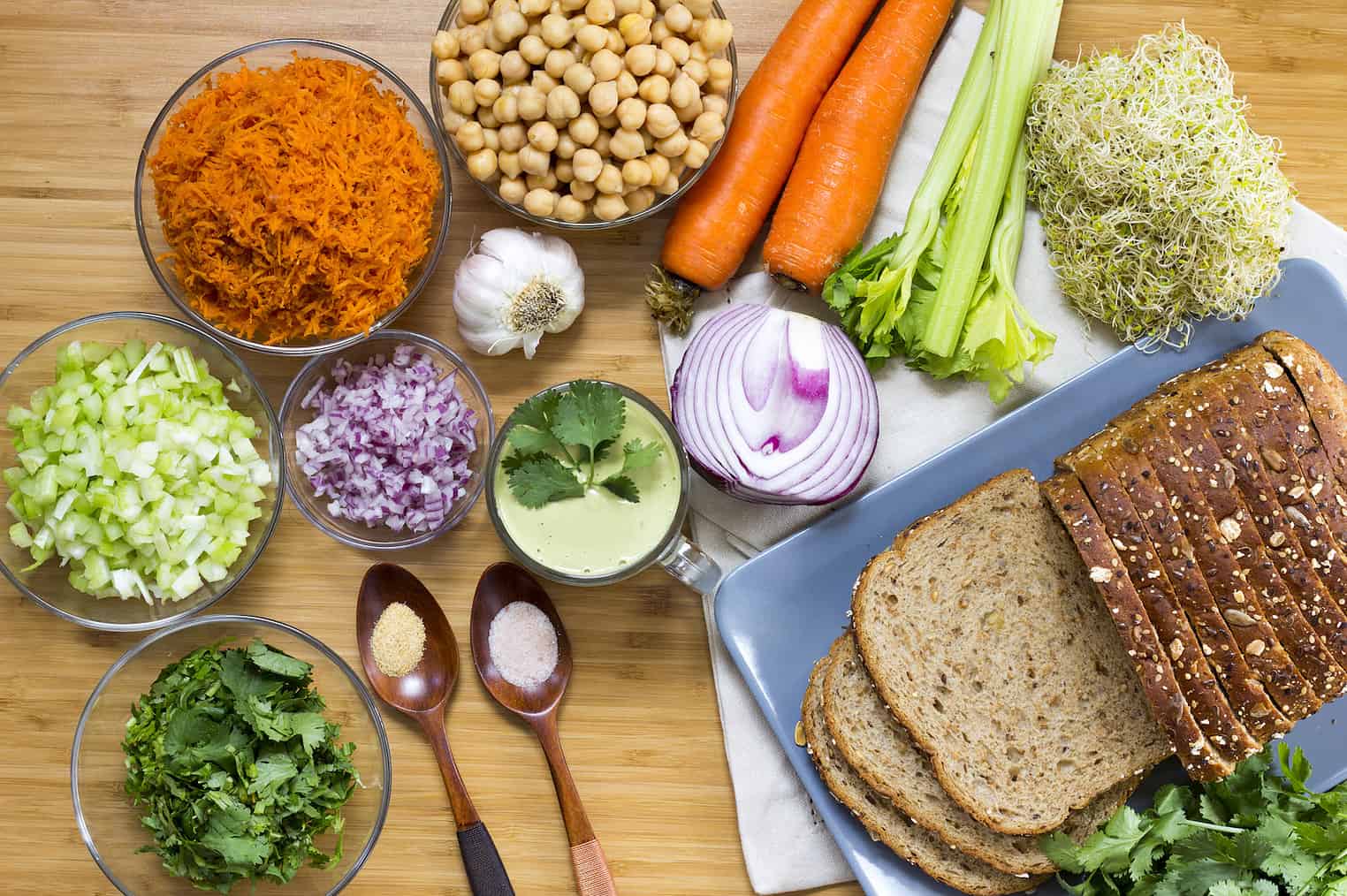
“Let’s not forget the rockstars of plant based eating – Whole grains, legumes, vegetables, fruits, nuts and seeds. These nutritional powerhouses not only diversify our meals but also contribute to our overall well being. Swap white bread with wholemeal, sprinkle some seeds, or add a can of beans on your salads, whip up a creamy hummus, or enjoy a handful of nuts as a satisfying snack can be a good place to start eating MORE plants.” Dr Shy Vishnumohan PhD APD, Food Scientist and Accredited Practising Dietitian based in Perth.
Kale

“My number one food for people to eat more of is kale. Yes, I realize it may no longer be the Jennifer Aniston of vegetables, but it’s still a powerhouse. Why?Leafy greens like kale protect against dementia. Kale also provides beta-carotene, potassium, vitamin C and lutein. Kale has just over 7 calories per cup and can be added to salads, soups, and stews or sauteed as a side dish” Lisa Andrews, MEd, RD, LD Owner
Ginger
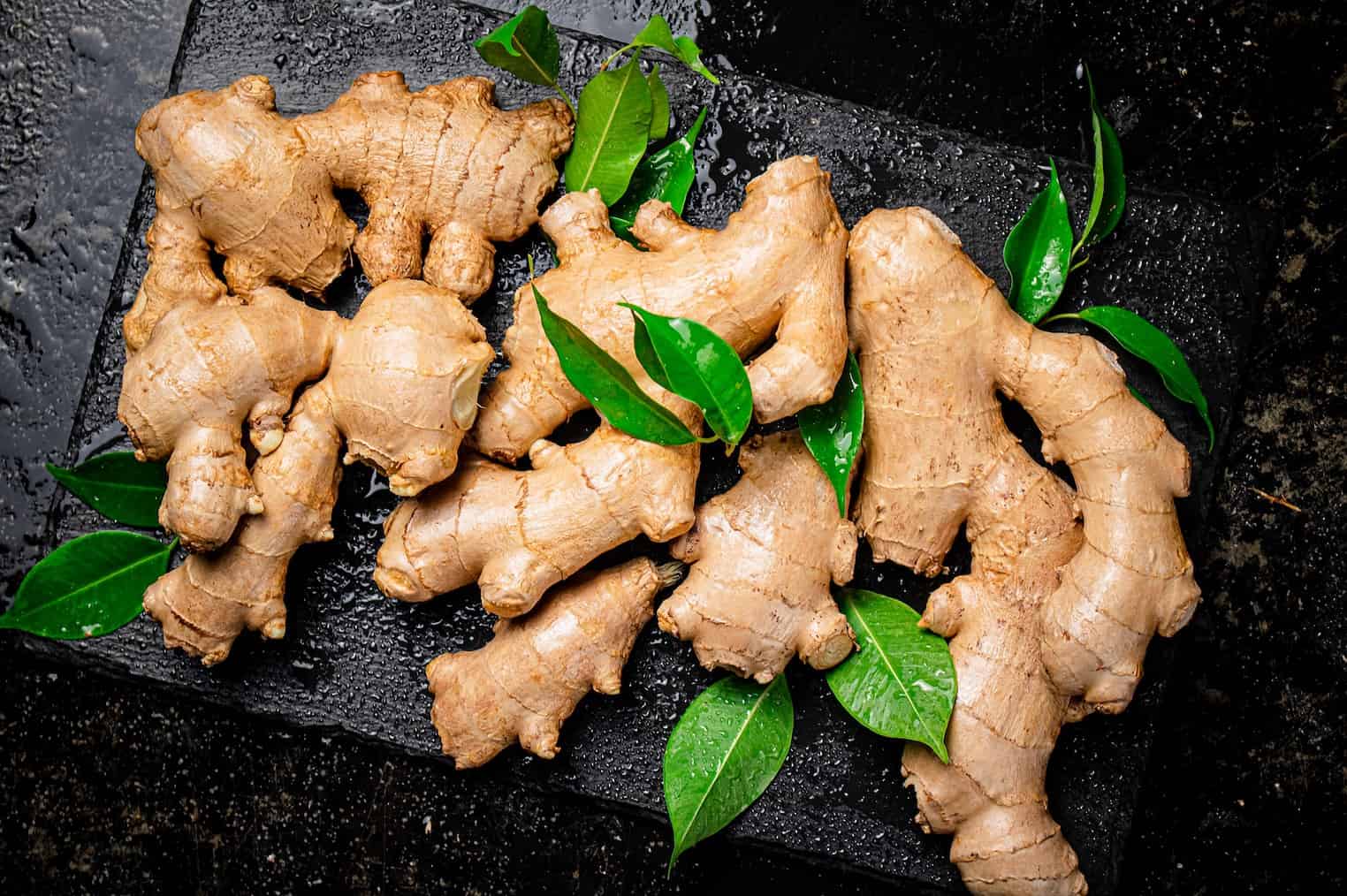
“Ginger is rich in antioxidants and can help fight inflammation. This can be particularly helpful for people with inflammatory conditions like arthritis. Ginger root has a spicy flavor that can be added to smoothies, steeped into a tea, or tossed into a stir-fry.” Kayley Myers MS, RDN
Blueberries
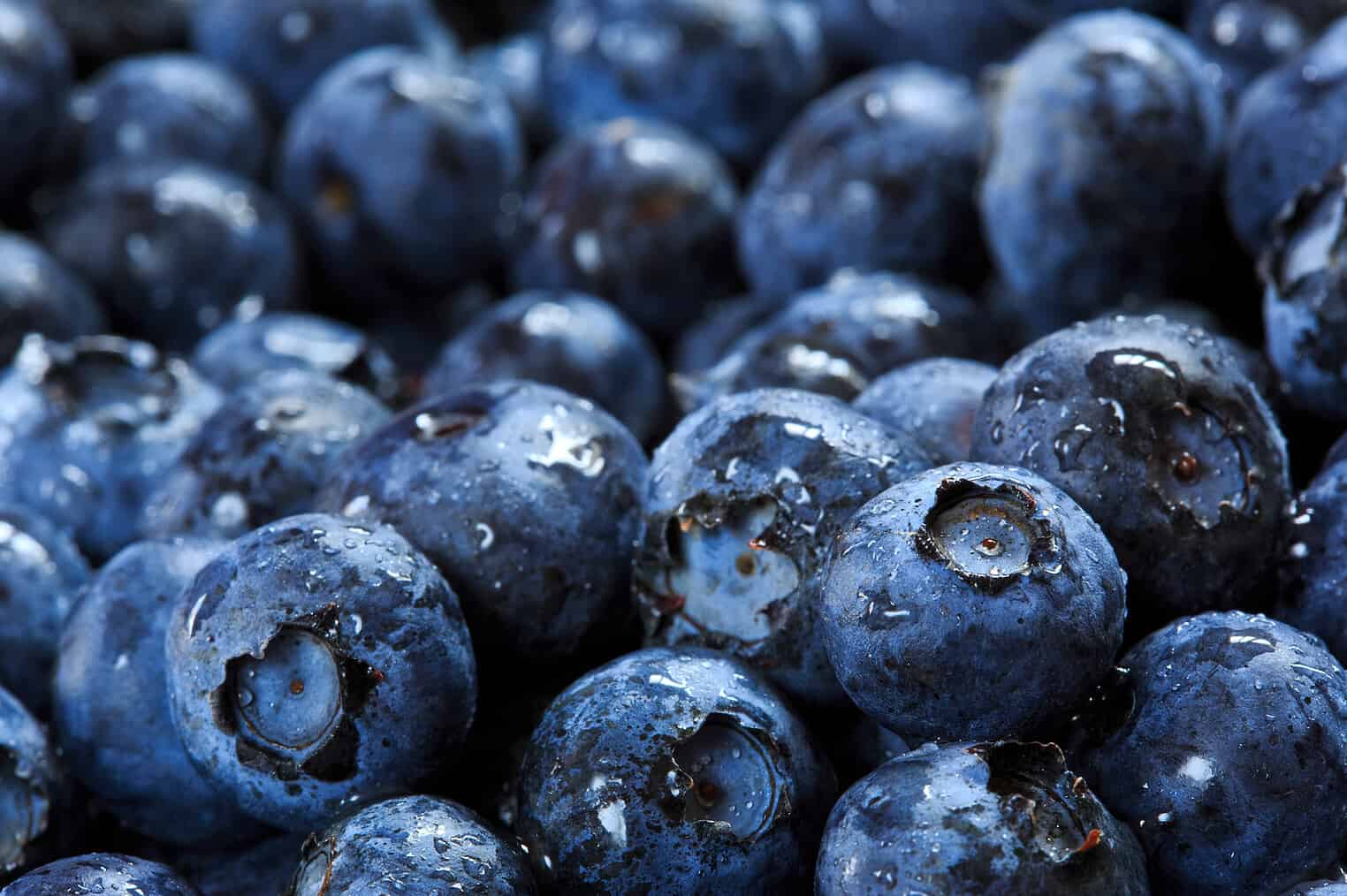
“I always recommend people eat more blueberries. Blueberries are a good source of fiber and are high in antioxidants that help keep our brain healthy and protect it from damage. Add a handful of blueberries to your oatmeal or yogurt for an easy snack and enjoy them a few times a week.” Christina Iaboni, RD
Tofu
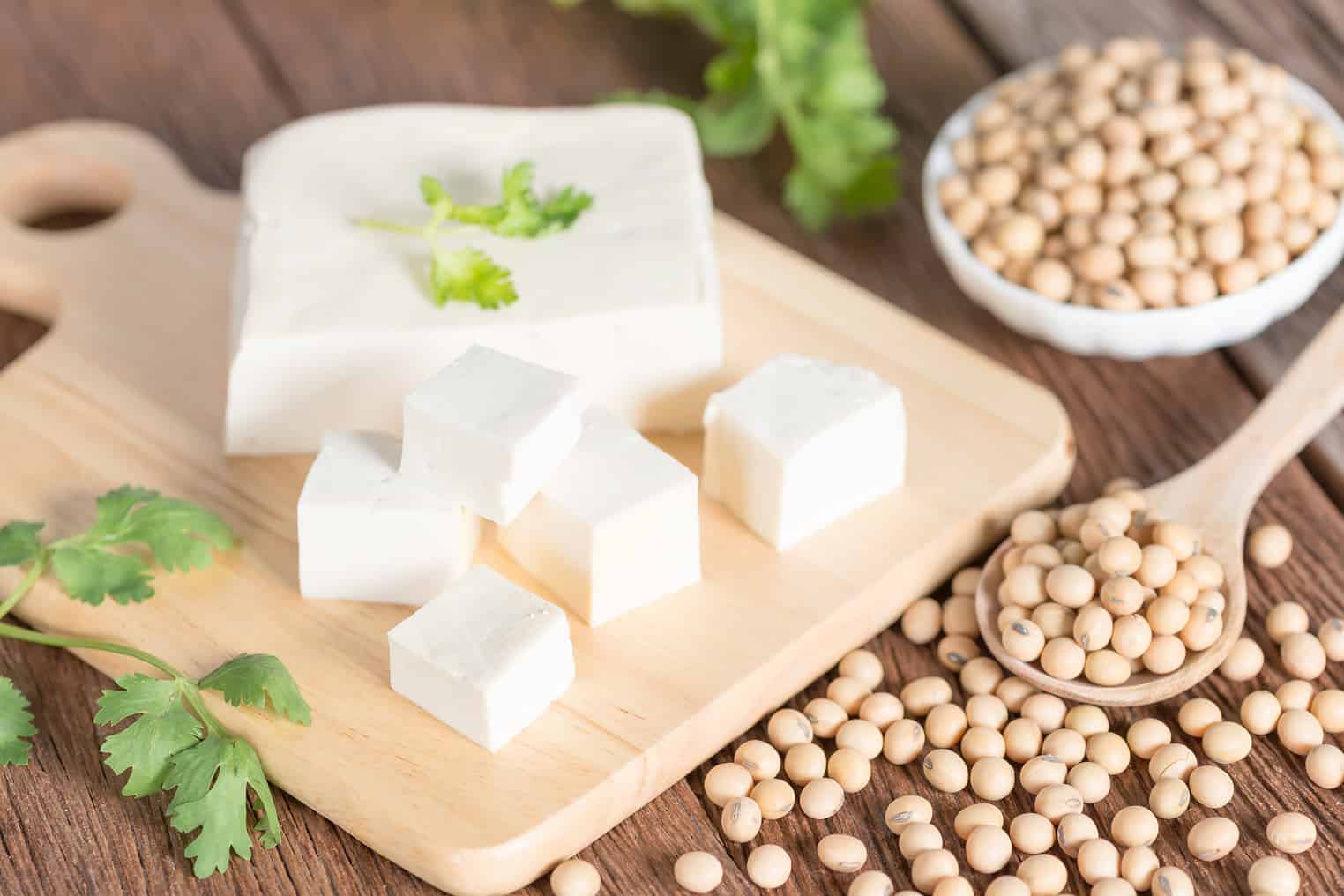
“Tofu is another great source of plant-based protein and is also rich in minerals like calcium, manganese, iron, and zinc, which are essential for healthy bones and muscles. Tofu is a complete source of dietary protein, containing all nine essential amino acids needed in the diet. A 3-ounce serving of extra firm tofu provides 8-10 grams of plant based protein. Tofu is a versatile ingredient that can be used in a wide variety of dishes, such as stir-fries, smoothies, soups, sauces, and even desserts. It is a great option for those following plant-based diets or are looking to diversify their protein sources.” Wan Na Chun, MPH, RD, CPT, owner of One Pot Wellness


